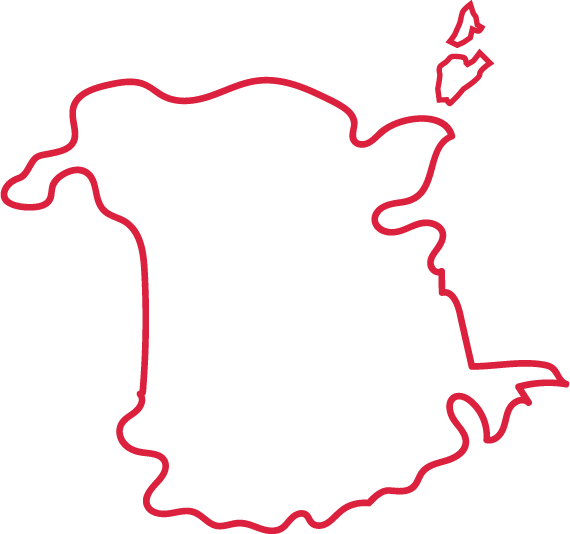New Brunswick Lung Health:
Lung Cancer
Did You Know?
Lung Cancer is the leading cause of cancer death in New Brunswick, accounting for more cancer deaths than colon, breast, and prostate cancers combined.
What is Lung Cancer?
Lung cancer is a type of cancer that starts when abnormal cells begin growing uncontrolled within the lungs. Here, we will discuss primary lung cancer (firstly found in the lung) vs. cancer that arrives in the lung from other tissues (metastatic and malignancy).
There are 2 main types of Lungs Cancer:
– Small cell carcinoma lung cancer (SCLC): less common type of lung cancer which spreads faster than non-small cell lung cancer.
– Non-small cell lung carcinomas (NSCLCs): the 3 more common types of lung cancer, which usually spread more slowly.
Causes:
Scientists, and recently the tobacco industry, agree that cigarette smoking causes & is the most common cause of lung cancer. It can also be caused by exposure to second-hand smoke, and environmental exposures like radon, formaldehyde, diesel exhaust, chemicals, asbestos, air pollution, and some petroleum products. Radon exposure is the leading cause of lung cancer among non-smokers.
How Smoking Harms Your Lungs:
Smoking damages your lungs by delivering cancer-causing chemicals inside you, and by harming your lungs’ natural cleaning and repair systems. Smoke from cigarettes, cigars and pipes is made up of over 4,000 dangerous chemicals, many of which are cancer-causing (carcinogens). Repeated exposure to carcinogens increases the number of abnormal cells that can eventually form a tumor.
Healthy lungs contain a thin layer of mucus and thousands of tiny hairs (cilia) inside of your breathing tubes. The cilia act as a natural cleaning system for your lungs by evacuating dirt and pollution trapped in the mucus.
Smoking can severely damage your lungs so that the natural cleaning system does not work. This keeps dirt, pollution, and the dangerous chemicals in smoke inside your lungs. As dirt and chemicals build up in your lungs, you have a higher chance of developing lung cancer. The same principles apply for second-hand smoke. Learn more: Smoking & Vaping.
Other causes of Lung Cancer:
Radon
Radon is a naturally occurring, odourless, invisible gas found in the soil. The gas enters buildings through cracks in the foundation, insulation, or through drains or walls. NB Lung’s test show that 1 in 4 homes in New Brunswick have prominent levels of radon. Health Canada reports show that 16% of lung cancer cases are caused by radon exposure. Learn more: Radon.
Asbestos
Asbestos is found in many older workplaces and homes. Only a small number of lung cancer cases are caused by asbestos exposure every year, but every step should be taken to avoid exposure to it. Asbestos symptoms only appear 10 to 40 years after initial exposure. Asbestos exposure is the most prevalent cause of occupational lung cancer mortality in Canada and worldwide.
Outdoor Air Pollution
Outdoor air pollution is a mixture of tiny particles and substances in the air that can impact lung health. These particles can be from industrial pollution, wood smoke, or exhaust and fumes from traffic. Health Canada says that 15,000 premature deaths each year are linked to air pollution. Learn more: Wood smoke, Wildfires, Air Pollution and Children’s Health.
Other toxic products
Uranium, arsenic, and some petroleum products may also increase the risk of developing lung cancer.
Family Predisposition
A familial predisposition to lung cancer increased in individuals susceptible to the disease. Compared to the general population, lung cancer is three times more likely to develop in persons who have close relatives with the disease.
Personal history of cancer or other lung diseases
Emphysema, chronic bronchitis, pneumonia, and tuberculosis can also increase your risk of developing lung cancer. Lung cancer is more common in people who have been previously diagnosed with other cancers, such as the mouth or throat.
Smoking increased the risk of lung cancer by about 10-fold, and asbestos increased the risk by about 5-fold in the incidence of lung cancer ; the two together increased the risk by about 50-fold (not 15-fold), compared with that of the nonsmokers who were unexposed to asbestos; an almost pure multiplicative effect.
What is the best way to lower your risk of lung cancer?
– Do not smoke. If you do smoke, quit.
– Stay away from second-hand smoke.
– Test your home for radon.
Signs & Symptoms
At an early stage, there are no symptoms. By the time it is diagnosed, it is usually advanced. An early diagnosis can add years to your life, so see your healthcare provider if you experience any of these symptoms:
– A cough that does not go away or gets worse over time
– Chest pain and bone pain that does not go away
– Phlegm production
– Coughing up blood
– Fatigue and weakness
– Feeling short of breath
– Wheezing
– Hoarseness
– Repeated pneumonia and bronchitis
– Swollen neck and face
– Loss of hunger, or losing weight without trying
– Headache
– Lung Cancer can be Asymptomatic
Lung Cancer Screening
Early detection is critically important. The sooner lung cancer is diagnosed, the better the opportunity for curative treatment.
The Canadian Task Force on Preventive Health Care recommends screening for lung cancer with three consecutive annual CT scans in high-risk individuals (adults aged 55-74 years who currently smoke or quit less than 15 years ago, with a history of smoking).
In 2023, the government of New Brunswick announced that they had begun working on a lung cancer screening program aimed at high-risk patients. The provincial screening program is expected to be rolled out in 2025.
Until then, if you have signs and symptoms of lung cancer, or you have been exposed to the causes of lung cancer, speak to your healthcare provider about your concerns.
If you have recently been diagnosed with lung cancer, you can get a free radon test kit from Take Action on Radon
How NB Lung is Helping
We offer smoking cessation resources and one-on-one consultations with our Respiratory Therapist to help patients navigate their diagnosis and treatment. If essential equipment is not covered by Medicare, please get in contact with us as we may be able to help. We also offer radon test kits and community radon testing drives to help prevent radon-induced lung cancer.
NB Lung has been helping New Brunswickers breathe easier since 1933.
Thank you for your support!
Page Last Updated: 28/02/2023

